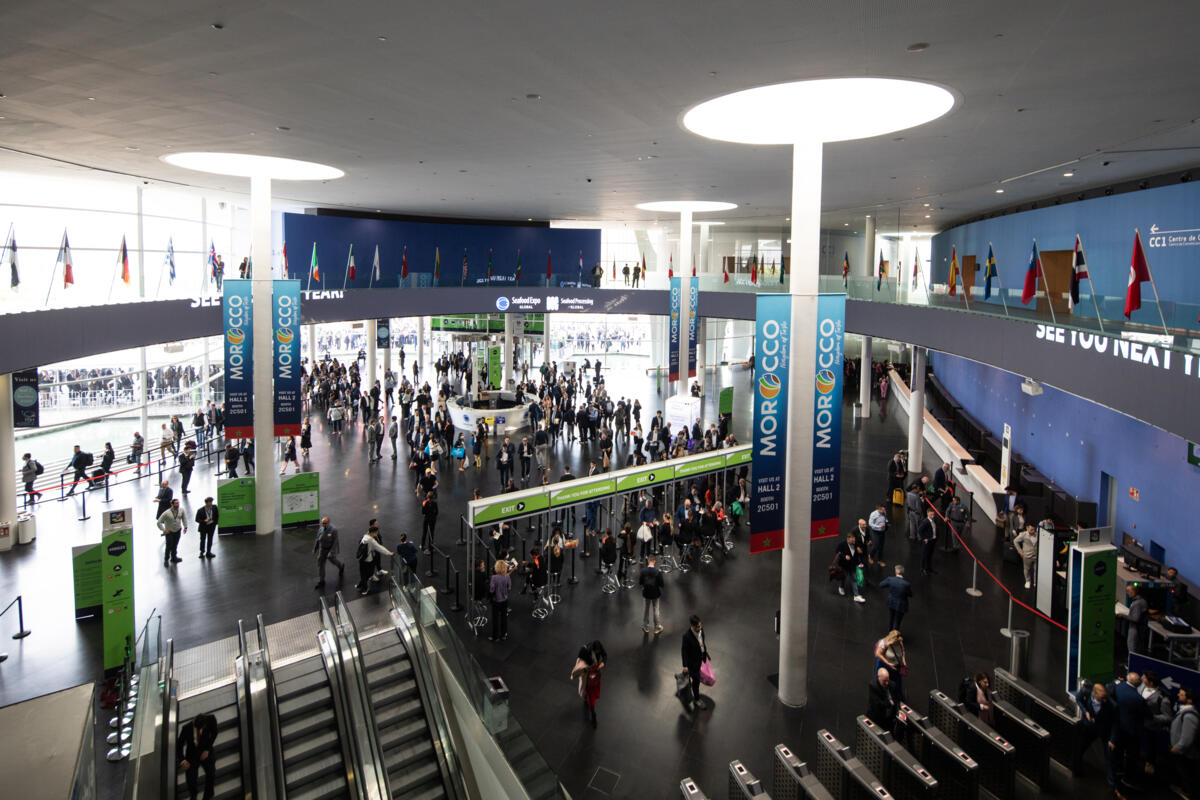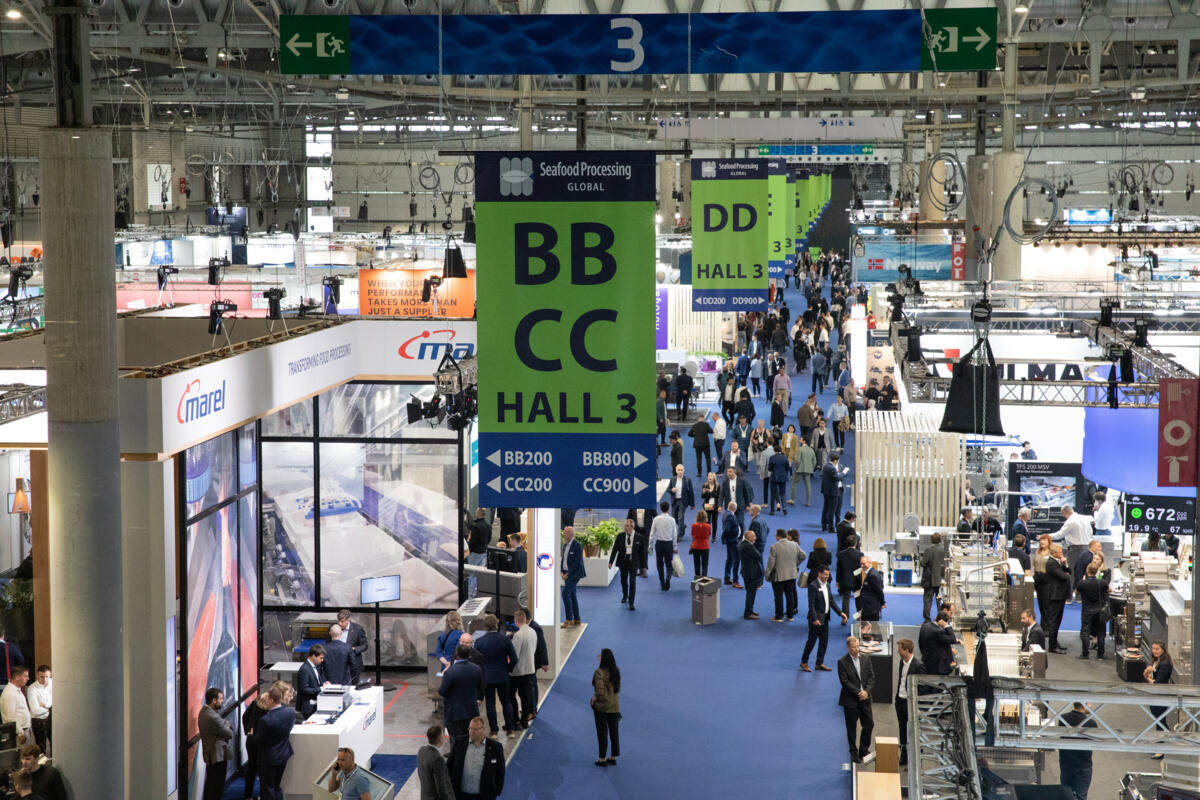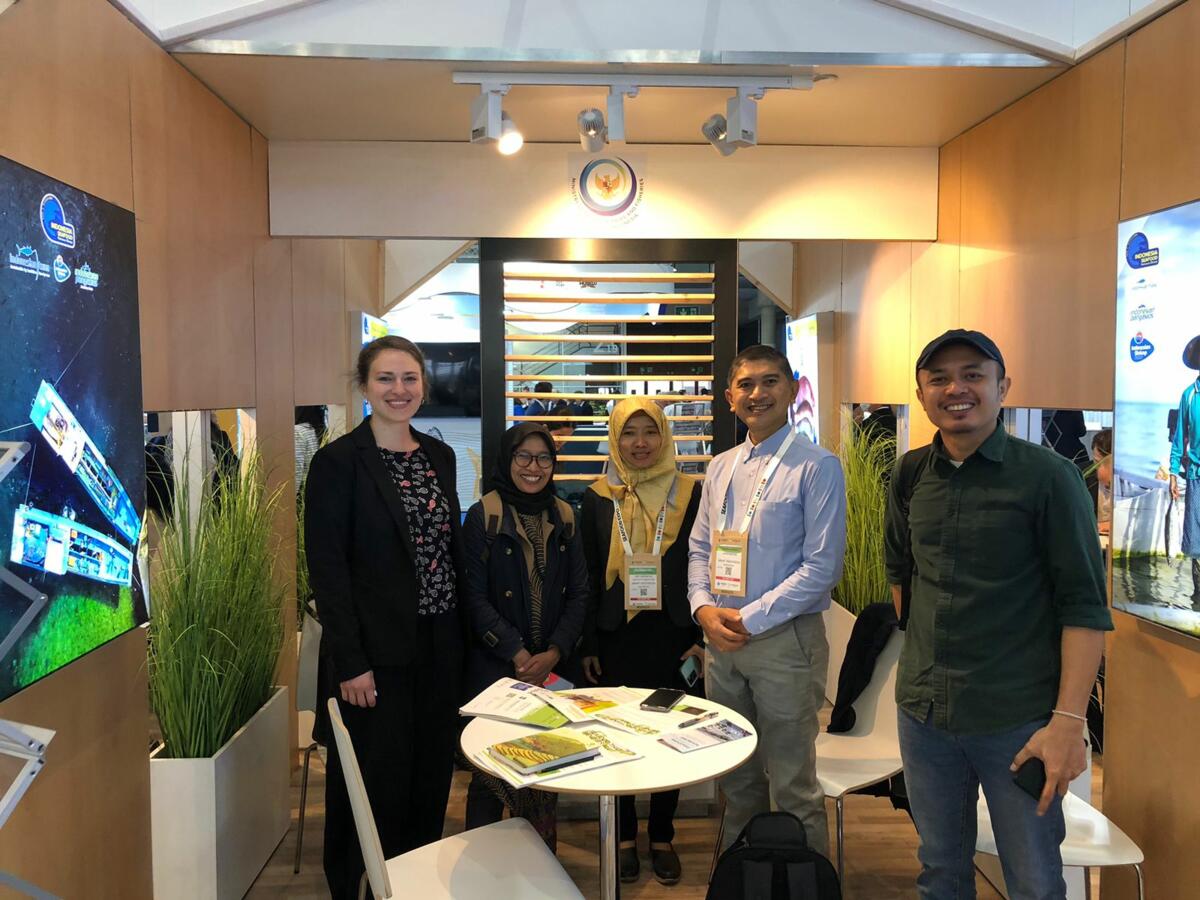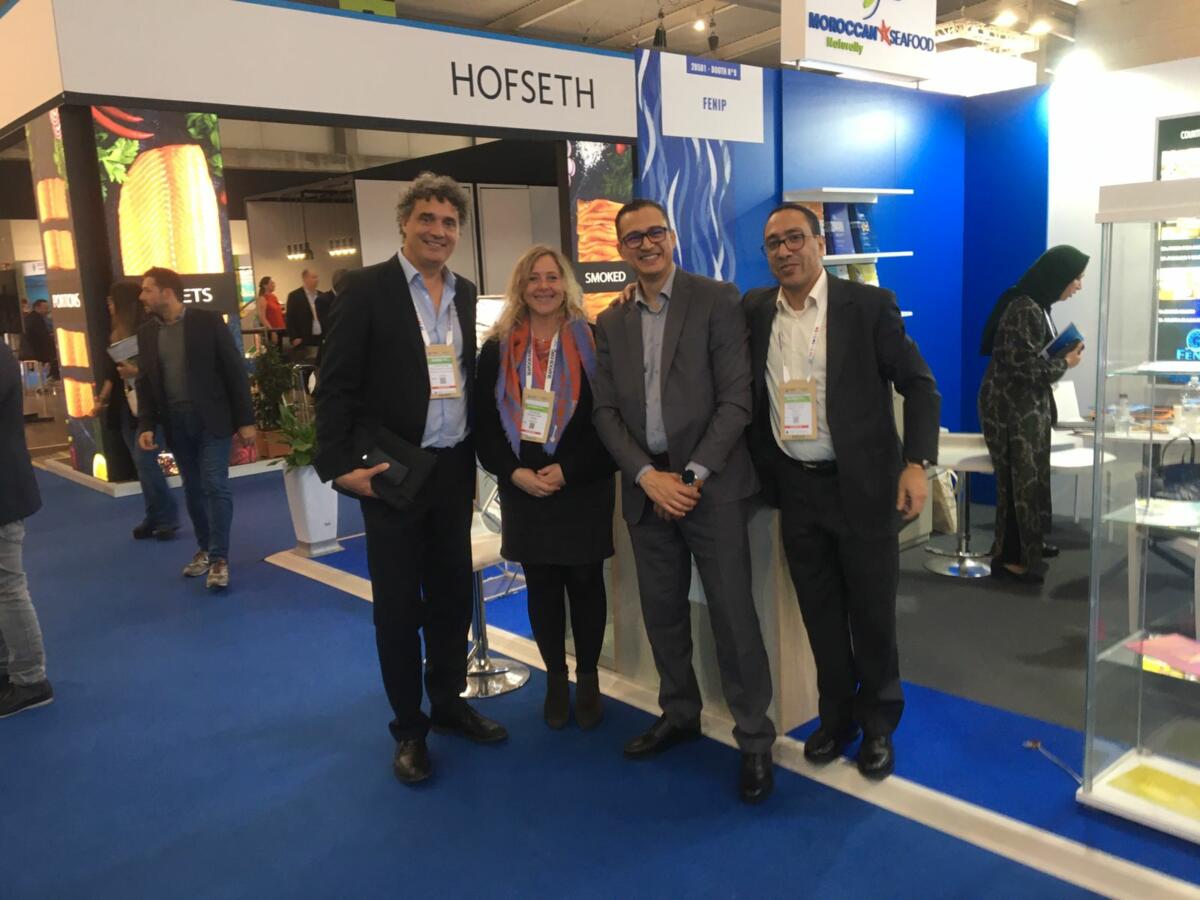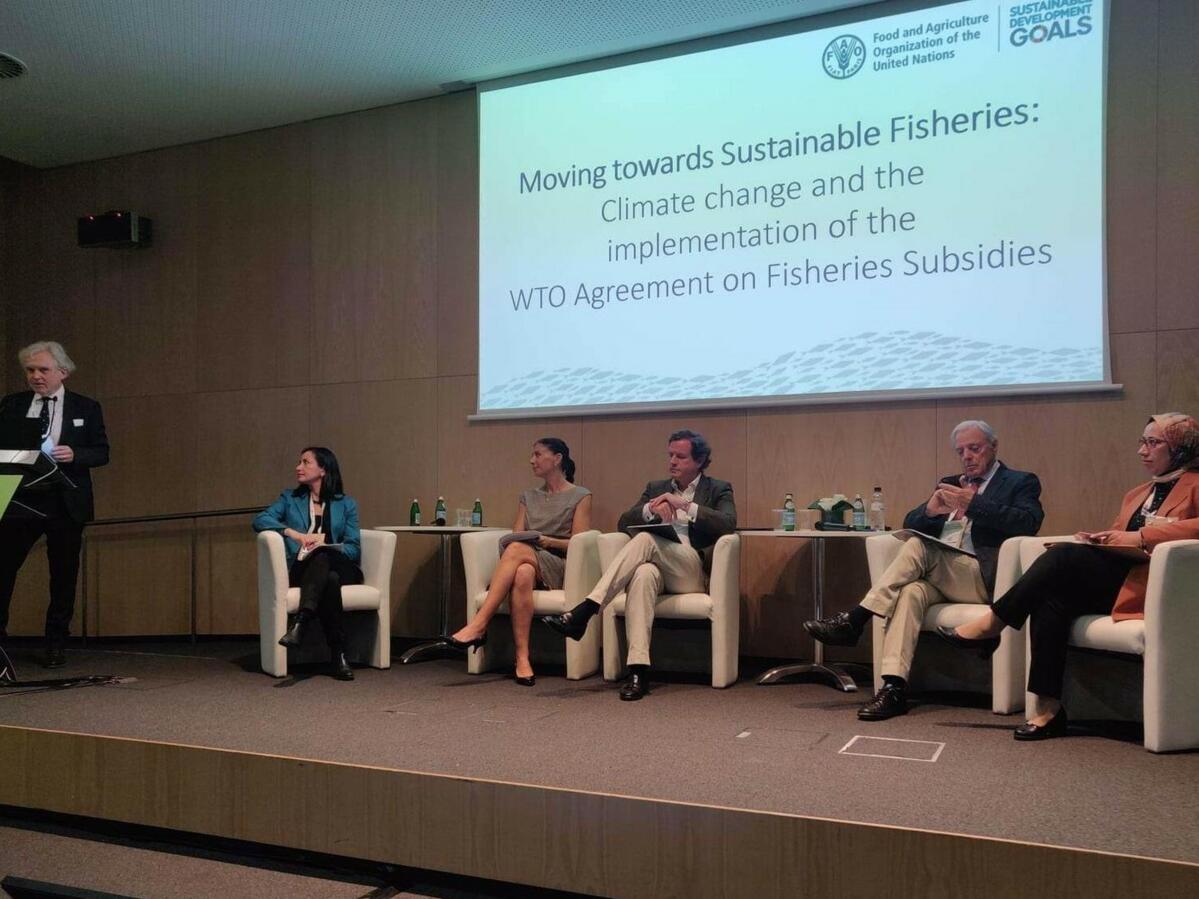SIPPO Indonesia, Morocco and Tunisa at the Seafood Expo Global Barcelona
Three SIPPO teams successfully supported BSOs at the Seafood Expo Global (SEG) in Barcelona: SIPPO Indonesia, SIPPO Morocco and SIPPO Tunisia. In these three countries SIPPO is active in the sector Fish & Seafood. The fair offered an ideal platform for the participating BSOs to network and to exchange information on sustainability in the Fish & Seafood sector.
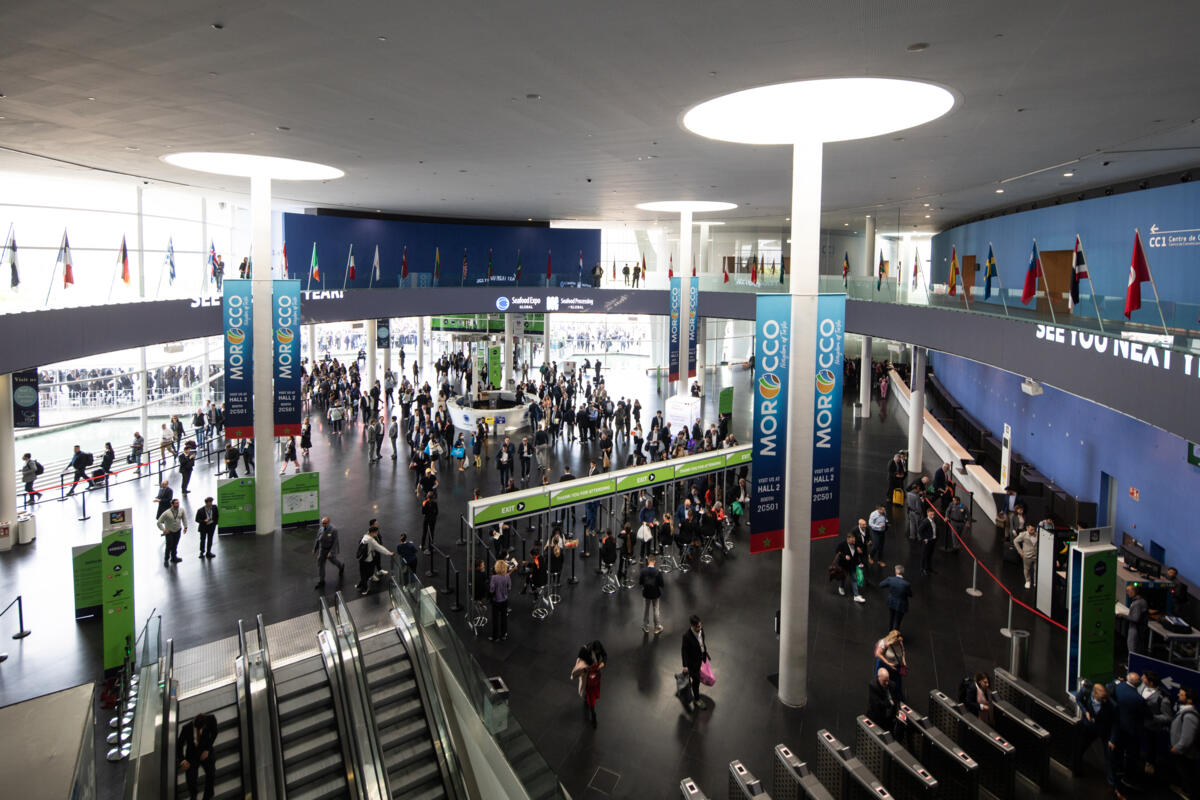
SIPPO Morocco accompanied BSOs FENIP and Morocco Foodex with over 30 participating companies to the SEG in Barcelona from April 24-27, 2023. SIPPO Morocco accompanied FENIP as a panelist at the FAO Conference on the Sustainability of Fisheries Resources, where challenges such as climate change and the implementation of the WTO Agreement on Fisheries Subsidies were discussed. This was an incredibly enriching experience for FENIP in terms of its future contributions in this field.
Contacts with new markets, certification issues
With SIPPO's support, FENIP firstly advanced the development of ecological labelling of Moroccan fisheries resources. Second, it identified new potential markets and customers for its members, and third, it promoted the capacity for subcontracting of fish processing products in Morocco before re-export. Finally, it identified and then shared the latest technological innovations with the Moroccan fishing industry.
In addition, SIPPO and the BSOs met with potential buyers from Switzerland, Italy, and Spain to learn about market requirements and explore opportunities to access the most profitable markets. With regard to certification, they met with MSC experts to learn about the latest progress in Morocco on certification and to gather information on the status of MSC certification for pelagic species in Morocco.
Indonesia presented its strong position in the fish and seafood sector
The Indonesian Ministry of Marine Affairs and Fisheries (MMAF) with the support of SIPPO Indonesia built international networks and sought possible collaboration with Oxfam and GSSI (Global Sustainable Seafood Initiative) to promote Indonesian sustainable shrimp to European buyers. As stated by Mr. Erwin Dwiyana, Marketing Director of the General Directorate of Product Competitiveness of the Ministry of Marine Affairs and Fisheries:
“Indonesia is among the top 5 seafood producers (…) and a sustainable marine and fisheries development is a vital contribution to ocean health and country's economy. Therefore, The Ministry of Maritime Affairs and Fisheries continues to strive to conserve resources in a sustainable manner through the Sustainable Blue Economy policy. The policy is a concept to create a balance between ecology and economy.”
Convincing promotion
SIPPO Indonesia carefully prepared its appearance at the SEG in Barcelona together with MMAF with the goal to be well prepared for the promotion of sustainable shrimp to Swiss and European buyers. Through intensive training they strengthened the ability to convey the messages in a concise and structured manner to convince buyers of the product as well as to gather valuable information from buyers for market research purposes.
The value of networks among BSOs
SEG Barcelona also provided a vivid practical example of the value of networking between BSOs of the same sector from different SIPPO countries. For example, Indonesian and Tunisian BSOs had fruitful exchanges to promote exports from both countries. Tunisia needs a market and experts for blue swimming crab and Indonesia needs a market for its skipjack tuna. Tunisia has a strong tuna canning industry. The open exchange between the BSOs led representatives of Indonesia to connect the Tunisian BSO with the right crab association in Indonesia. Similarly, the Tunisian tuna canning industry came into contact with Indonesian producers for the supply of tuna/skipjack from Indonesia.
SIPPO Morocco and their BSOs also met with BSOs from Tunisia and Indonesia at the Moroccan pavilion to share experience in the adoption of the charter on sustainability, and to benefit from Indonesia's successful experiences in sustainable aquaculture.



 Serbia
Serbia












